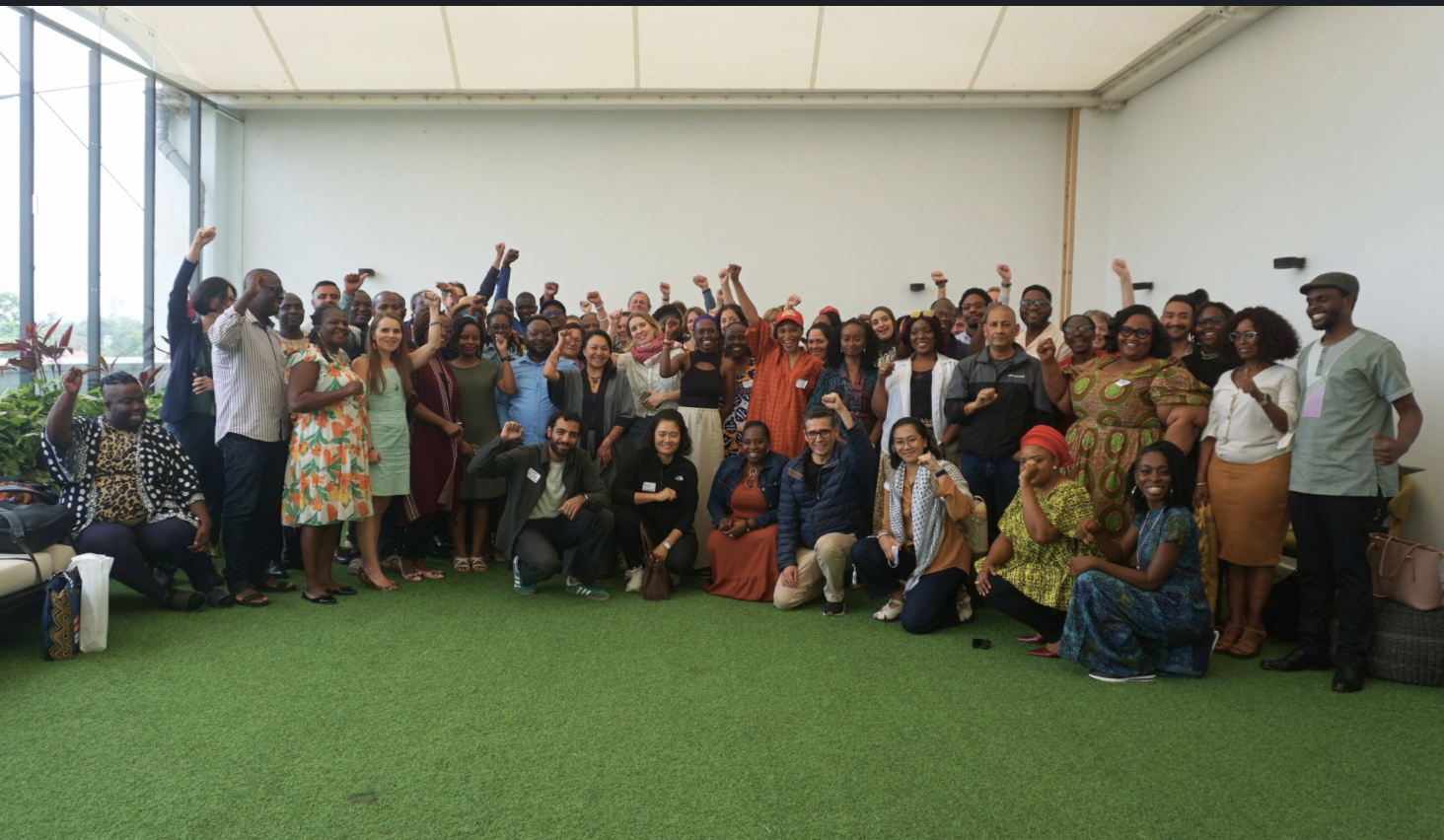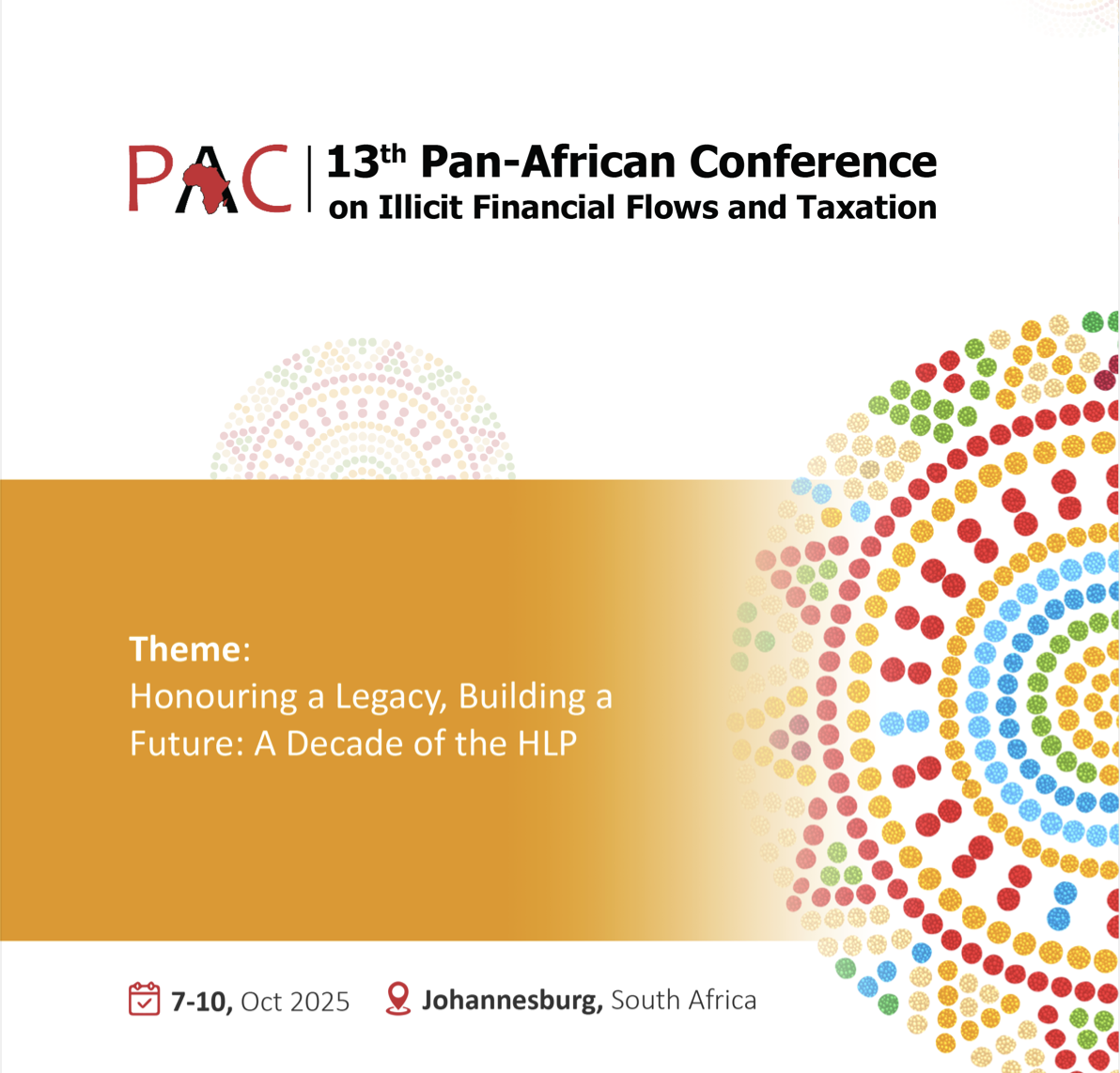
Inputs to 2022 FfD Forum
Link to letter (pdf)
To the kind attention of:
H. E. Collen Vixen Kelapile
President of the Economic and Social Council
Cc:
Mr. Navid Hanif, Director, UNDESA Financing for Sustainable Development Office
Members of the ECOSOC Bureau
Permanent Representatives and Observers to the United Nations in New York
15 February 2022
RE: 2022 ECOSOC Forum on Financing for Development Follow-up
Your Excellency,
We, the Civil Society Financing for Development (FfD) Group, representing several hundreds of organizations, federations and networks from diverse regions and constituencies around the world (including the Women’s Working Group on Financing for Development), respectfully submit some inputs regarding the 2022 ECOSOC Forum on Financing for Development (FfD) Follow-up (or “the Forum”).
The 2022 World Economic Situation and Prospects (WESP) report, produced by the UN Department of Economic and Social Affairs (DESA), noted several continuing challenges in the global economy such as vaccine inequality, global poverty at record highs, rising inequality within and between countries and the limited fiscal space in developing countries to shape recovery and development. The need for an ambitious, multilateral response under the auspices, leadership and coordination of the United Nations has never been more urgent. The Financing for Development process, which is the only inclusive decision-making space where developing countries are at the table with an equal voice and vote on global economic governance matters, needs to respond decisively and urgently.
The 2022 intergovernmentally agreed FfD outcome document and FfD Forum needs to break from the last two years’ of disappointing outcomes and ‘business as usual’ approach. We count on your leadership towards ensuring a strong FfD outcome document with the following concrete commitments:
Organising the next UN Summit on Financing for Development/Monterrey + 20: 2022 marks twenty years since the first International Conference on FfD was held in Monterrey, Mexico in March 2002. It was the first United Nations summit-level meeting and a landmark international consensus to address key financial and related issues pertaining to global development which took place just as the world was reeling from economic recession. Such a summit has never been more urgent again given the financing needs in the context of the COVID-19 pandemic, and future summits including the UN Social Summit in 2025 that will only succeed if urgent reforms of the global financial system are advanced. It is time for UN member states to convene the 4th FfD conference/Monterrey + 20 to agree a new global consensus on an economic system that works for people and the planet. Under the leadership of the ECOSOC President and Bureau, informal discussions on the urgent need for a 4th FfD conference/Monterrey + 20 process should be immediately initiated. The negotiations for the 2022 FfD outcome document would be an opportunity for the membership to agree on such a Summit and define an adequate schedule of in-person preparatory committees.
Prioritise key, specific issues in the lead up to the FfD negotiations and FfD Forum to allow for consensus to be built such as:
Establish a Sovereign Debt Workout Mechanism under the auspices of the UN that would comprehensively address unsustainable and illegitimate debt, including through extensive debt cancellation: The COVID-19 pandemic has increased the risk of a new wave of debt crises. The risk of debt crisis is being faced by middle income countries too, aside from low-income countries. As such, mechanisms, processes and commitments towards debt reduction must also include solutions for middle income countries taking into account peculiarities in their debt situation. Vital public financial resources are being allocated today to external debt repayments at the expense of domestic health, social, economic financing and climate resilient needs. It is evident that current ad-hoc international initiatives to address the debt resolution are insufficient and existing debt sustainability assessments inadequate, as they disregard human rights, gender equality or climate investment needs. The United Nations, with the core mandate to address critical global issues, and the fact that it is neither debtor nor creditor itself, is the only inclusive multilateral and democratic space that has the legitimacy and competence to discuss and agree a multilateral legal framework to prevent and address sovereign debt crises;
Establish a universal, UN intergovernmental tax body and negotiate a UN Tax Convention to comprehensively address tax havens, tax abuse by multinational corporations and other illicit financial flows through a truly universal, intergovernmental process at the UN, with broad rights holders’ participation. This becomes even more urgent considering the nature and size of the digital economy and the increasing importance of e-commerce. UN DESA’s 2022 World Economic Situation and Prospects (WESP) report noted that the 2021 tax deal of the OECD Inclusive Framework will only benefit a small number of developed countries and that developing countries stand to lose out. Both the Africa Group of the United Nations and the FACTI High-level Panel have called for the negotiation of a United Nations Tax Convention, and the Group of 77 have consistently called for an intergovernmental tax body to be established under the United Nations. Unless the failures of the international tax system are urgently addressed, countries around the world will continue to lose billions of public revenue dollars. This will increase the already unsustainable debt levels, worsen income and wealth inequality and undermine governments’ abilities to respond to the crisis, while also decreasing the public revenue base of developing countries;
Agree on a moratorium on Investor-State-Dispute-Settlement (ISDS) cases, removal of all ISDS provisions in all bilateral investment treaties and trade and investment agreements and call upon WTO Members to adopt without delay a waiver that is adequate and effective in scope, from the obligations under the TRIPS agreement for health technologies and products related to COVID-19 countermeasures. An open-ended intergovernmental working group should be established to elaborate a multilateral agreement for a coordinated and permanent suspension of Investor-State Dispute Settlement (ISDS) mechanisms in respect of claims that Member States consider concerning COVID-19 related measures. Such a working group should also advance the temporary suspension of all ISDS cases related to any sector or investment, against any Member State during the COVID-19 pandemic and during the recovery period in order to ensure that public resources are utilized for financing efforts towards addressing the many challenges raised during the pandemic;
Regulation of Credit Rating Agencies (CRAs): United Nations should lead on further supervision and regulation of Credit Rating Agencies (CRAs) by convening a universal, intergovernmental Commission under the ECOSOC with a timeline to examine needed international institutional innovations, including in the UN, required to correct and avert the adverse impacts of CRAs on international finance. In addition to looking at the adequacy of CRAs rating methodologies and possible bias in its implementation that undermine developing countries’ access to capital markets, CRA regulation would also need to focus on issues such as addressing conflicts of interest, promoting alternative structures to avoid quasi-monopolistic market dynamics, and tackling excessive reliance of investors on ratings. Such a commission should also further study recommendations such as establishing a United Nations observatory of credit rating service providers suggested in 2013 by then UN Secretary General and establishing an international credit rating agency at the UN that could counterbalance the influence of private credit rating agencies. CS FfD Group’s submission on CRAs can be accessed here: https://csoforffd.org/2020/12/03/submission-on-credit-rating-agencies/
A series of focused formal and informal meetings on each of these issues could be organized by the President of ECOSOC through mechanisms such as ‘Friends of Chair’ groupings to ensure progress is urgently made on these specific tracks. Adequate space should also be provided in the programme of the FfD Forum on these specific issues in the context of this crisis rather than the broad FfD thematic chapter discussion that is the norm.
3. Additional thematic proposals for the 2022 FfD Forum:
Review development outcomes of public-private-partnerships, blended finance and other financing mechanisms established to promote a ‘private finance first’ approach to infrastructure and public services. The COVID-19 pandemic has provided a stark reminder of the importance of universal, timely, affordable, gender-responsive, high quality and accessible public services, as well as sustainable infrastructure. The inadequacy of development models that prioritize private profit that fails to fulfil public needs and enables excessive profiteering out of humanitarian emergencies and disasters has been greatly exposed. The FfD Forum should be the place to downgrade private finance as a source of financing for development and reaffirm the centrality of public policies and investments.
Accelerate the implementation of the official development assistance (ODA) commitments to fulfil and exceed the 0.7% target for ODA in the form of unconditional grants. As the ambitions of the Agenda 2030 are further away, it is vital that the long-standing commitments to delivering international development assistance, including ensuring quality and effectiveness, are realised and secure commitment to make up for the shortfall in unfulfilled targets in the past years in addition to future targets for ODA flows. Concessional finance plays a key in role in supporting Partner Countries on their way back from the COVID-19 pandemic induced crises without incurring in additional debt burden. Urgent action is needed by the global community to fund multilateral initiatives to support global vaccine campaigns. Donors should not report the COVID- 19 excess vaccine doses donations as ODA so as not to reward unfair practices that led to massive vaccine appropriation by rich countries in the first place.
Assess systemic risks posed by unregulated or inadequately regulated financial sector instruments and actors: This includes regulation and supervision of Credit Rating Agencies (see above), a global regulatory framework for the asset management industry and a global agreement on the importance of capital account management. Further consideration must be given to the report of “The Commission of Experts of the President of the UN General Assembly on Reforms of the International Monetary and Financial System” that was established after the 2008 global financial crisis and many of their recommendations remain relevant today. There is also a need to scale-up fiscal reserves possibly available to developing countries to a level commensurate to their needs for equitable and adequate COVID-19 recovery, either by proceeding to a new allocation of Special Drawing Rights (SDRs) and/or by establishing mechanisms of rechannelling of unused SDRs from developed to developing countries that would preserve their unconditional nature. The distribution of SDRs reproduces the inequalities of the global financial system, as they are allocated in proportion to IMF members’ quotas, and therefore they are heavily skewed towards rich countries.
Global technology assessment mechanism at the UN: As the UN, governments and institutions grapple with the governance of digital technologies, there is an urgent need for broad, transparent, inclusive, accessible and participatory deliberations on the current and potential impacts of these technologies on the environment, the labour market, tax policy, livelihoods and society. The global COVID-19 pandemic has exposed the extent and further exacerbated the digital divide – the ever-widening gap in access to digital technology and infrastructures between the North and South, between men and women across the world, and between urban and rural communities within countries. There remains a huge vacuum in member state-led governance of digital technologies that needs to be addressed with a sense of urgency to assert the mandate of inclusive multilateral institutions over corporate interests and to protect human rights. Governance of digitalisation is key in curbing the widening digital divide and contribute towards the vision of the 2030 Agenda for Sustainable Development to Leave No One Behind.
Ensure fiscal space and scale up international cooperation for decent jobs creation and universal social protection in line with SDGs and ILO standards: National and international support for investments in sectors with the greatest potential for creating more and better jobs (such as climate transition in energy, infrastructure, transport, heavy industry, agriculture and construction, along with care and digital services) are essential to fix the broken labour market. Investments in care, creating millions of new decent jobs, also offer the opportunity to formalise current informal care jobs and to support women to participate in other areas of the economy. Moreover, the global pandemic illustrates more drastically than ever before the importance of ensuring adequate fiscal space to support the extension of social protection systems to ensure universal coverage through social protection floors, in line with ILO standards. We stress the need for access to essential health care for all and income security and to maintain these services even in times of crisis.
Regarding the modalities, we would like to raise the following concerns and proposals:
We remain concerned with the ability of the negotiated outcome to meaningfully accommodate the vibrant Forum discussions if the negotiations are already closed before the Forum week begins. We would therefore suggest keeping the negotiations open and maintaining place holders for some critical discussions to be finalized at the Forum itself;
In accordance with Monterrey modalities, civil society (as well as the private sector) is, in addition to governments and institutional stakeholders, an integral part of the FfD process. Civil society also contributes significantly to the international legitimacy of FfD and generates effective impacts of FfD mandates in global governance processes. We therefore call for civil society to be enabled to fully participate in all segments of the process, including as observers to the negotiations and by ensuring that all negotiation drafts are shared with civil society at the same time as member states to enable timely contributions. Civil society has always been in the room as observers in the negotiations in NY leading up to the FfD Forum. Virtual negotiations have unfortunately closed this door. We count on your leadership to correct this and allow us to nominate civil society observers for this year’s negotiations.
Beyond the FfD process, the intergovernmental negotiations for the review process of the Economic and Social Council and the High-Level Political Forum and the intergovernmental negotiations on the 2021 HLPF Ministerial Declaration, both included participation of civil society, not only as observers of the discussion but with direct interventions after Member States have completed their rounds of comments. All Co-Facilitators have been extremely forthcoming in ensuring the participation of civil society in these processes. It strikes a strident note that civil society is being left out of the room precisely in the process where it had participated since the very beginning with even more inclusive modalities than other UN processes.
We remain at your disposal for any necessary clarifications on these proposals and look forward to constructively engaging in the upcoming FfD Forum and other instances of the FfD follow up process.
Sincerely yours,
Civil Society Financing for Development Group (www.csoforffd.org)
(including the Women’s Working Group on Financing for Development)
Related Updates


